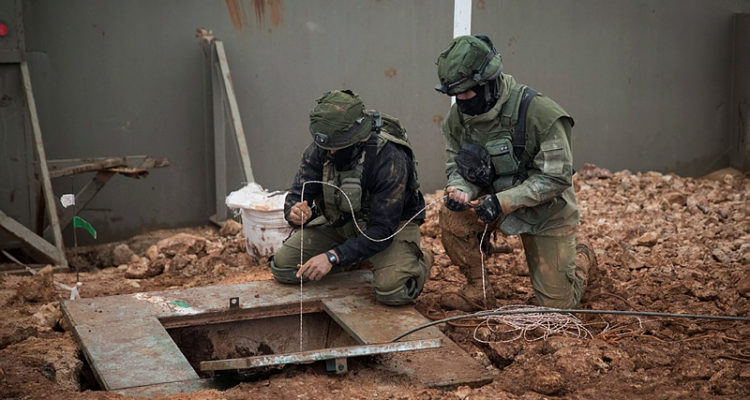Dug dozens of meters down into stone, hundreds of kilometers of tunnels have been dug over decades, says the French paper Liberation.
By Batya Jerenberg, World Israel News
Hezbollah has a tunnel network more dangerous and more vast than Hamas’ system under the Gaza Strip, the French paper Liberation reported Sunday.
The Iranian proxy has been digging them methodically since the end of the 2006 Second Lebanon War, said the report, although its forces had already begun boring the earth back in the 1980s to use tunnels the way Hamas does – as a means of moving troops unseen, storing weapons, and safeguarding its commanders from a potential Israeli invasion.
There are dozens and dozens of tunnels, some as deep as 80 meters underground, running for hundreds of kilometers under South Lebanon. One of them is reportedly an astonishing 45 kilometers long.
General Olivier Fasso, who served as a UN liaison officer in southern Lebanon and is currently a researcher at the French Institute for Strategic and Operational Education, told the paper that “Hezbollah buys land and turns some … into so-called nature reserves. We believe they set up training camps or weapon caches in them and probably included shafts leading to these tunnels. Israel, which was present in the area, managed to limit this spread until 2000, but Hezbollah reorganized from 2006 and had another 18 years to arrange this territory.”
One organization, called Green Without Borders, that masquerades as a group concerned with environmental issues on the Lebanese-Israel border, was put on the American foreign terrorist list to be sanctioned for the cover it provides Hezbollah in digging tunnels.
Israel publicized its discovery in December 2018 of six Hezbollah attack tunnels that were close to or already breaching its northern border, and destroyed them using explosives or injecting liquid cement along their lengths. Fasso was present at the time in Lebanon and attested to their sophisticated ventilation systems.
In 2020, the IDF announced that it had begun working on an underground barrier on the northern border that would notify Israel in real time if Hezbollah would try to restart its terror tunnel project, saying then that the army did not believe any new tunnels were being dug.
According to Liberation, Israel knows of at least some of the extant tunnels, and dropped white phosphorus bombs in specific areas over the border after the war began and Hezbollah began firing rockets in support of Hamas. The chemicals burned away covering brush and revealed a dozen entrance shafts which were then destroyed.
While Lebanese authorities deny the tunnels’ existence, according to the report, an Israeli source told the paper that the IDF knows it could “encounter a well-prepared underground army” and is therefore not rushing to jump into all-out war with the Iranian proxy.
A report last June by the Alma Research and Education Center extensively described a different way Hezbollah could use tunnels against Israel besides as passageways to infiltrate border communities with its elite Radwan Force. Tunnels can be packed with tons of explosives, which can obliterate a town, military position or border wall when detonated underneath them. It isn’t even necessary to endanger discovery by digging directly beneath, the report said, as exploding a tunnel built nearby could also bury targets under a deadly layer of rubble and earth.
Alma had already noted in August 2021 that Hezbollah had been “supported by the North Koreans and the Iranians” by using their earth-boring machines for the last 15 years to build a huge “inter-regional tunnel network.” The network, it wrote then, links Hezbollah’s main headquarters in Beirut to the Bekaa Valley, its “logistical operational backbone,” and to southern Lebanon, from which it targets Israel.
In contrast to Hamas, which has to shore up its underground passageways with cement due to the sandy soil of the coastal enclave, the Hezbollah tunnels are bored through stone, which would be harder to collapse. The report said that destroying them with explosives could even cause earthquakes or landslides.





